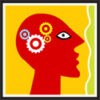CBT & CBT-I
Cognitive Behavioral Therapy (CBT):
- is collaborative. The clinician and the client work together to understand and resolve the client’s challenges. It is strength based, building on what is working or has worked in the client’s life and developing resources internally and externally.
- is educational in that handouts and written material is provided to give direction and exercises on how to examine, challenge and reframe problems.
- is short term as it usually takes in the range of 5-20 sessions.
- works on building skills and tools, through education, exercises and homework, for the client to learn new ways of coping that the client can continue to use after therapy is completed. This process builds the personal power of the client as he/she gains more control over his/her life.
- requires that the client engage in homework in order to examine different aspects of their life and implement new ways of thinking and behaving. Remember, there are 168 hours in a week and only one of which is in therapy.
- examines thoughts, feelings and behaviours. The client works to become aware of their thoughts, monitor their thoughts, and challenge the accuracy of those thoughts. Testing beliefs is one of the key components to engaging in CBT. Ineffective behaviours are often developed by clients to decrease stress and discomfort in the short term but often create more difficulties in the long term, “Short term gain for long term pain”. A therapist utilizing CBT as an approach helps the client to come up with new ways to handle situations that will improve coping and reduce discomfort.
- can help in affecting a change in how a client feels by working on thinking and behaviour which can include relaxation and HeartMath techniques.
Cognitive Behavioral Therapy for Insomnia (CBT-I):
CBT-I is a structured program to help you identify and change the thoughts, feelings, and behaviors that cause insomnia to persist over time. You will be meeting individually with a CBT-I therapist to set goals and work towards those goals. With CBT-I, the goals are sleep focused: falling asleep more quickly, reducing wakefulness during the night, improving sleep quality, worrying less about sleep, and coping better with the effects of poor sleep when insomnia nights happen. We will be asking you to track your sleep every morning, using a simple sleep diary, and your CBT-I therapist will help you use your diary to keep track of your progress.
CBT-I is what’s called a multi-component treatment, meaning that your CBT-I therapist will be drawing from a toolbox of strategies that have proven to be effective for sleep problems like yours. We’ll customize your treatment plan to target your individual sleep goals, but some of the most common CBT-I tools are:
- Sleep 101: Learn more about the science of sleep so that you can leverage your body’s natural sleep systems.
- Time in Bed Restriction, or Sleep Compression: Reduce the time you spend trying to sleep at night, to increase your body’s capacity for deep sleep.
- Stimulus Control: Retrain your brain to maximize the Bed-Sleep connection.
- Cognitive Therapy: Learn to change the unhelpful messages you may be telling yourself about sleep.
- Counter-Arousal Strategies: Quiet an active mind to get to sleep faster.
